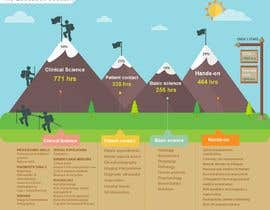If you're experiencing back pain, your body might be attempting to inform you something greater than simply discomfort. The way your back feels can provide important hints regarding your general well-being. Understanding the certain kind of discomfort you're really feeling and any kind of accompanying symptoms is essential to unraveling the mystery behind your discomfort. Allow's check out the common problems and signs related to different sorts of pain in the back to clarify what your body might be signaling.
Sorts Of Back Pain
When it pertains to neck and back pain, there are different types that you may experience. One common kind is muscular tissue discomfort, frequently triggered by overuse, pressure, or injury to the muscular tissues and ligaments supporting the spine. This kind of pain can vary from moderate discomfort to extreme and debilitating pain.
One more type is nerve pain, which can arise from problems like herniated discs or sciatica. Nerve pain typically presents as a sharp, shooting sensation that radiates down the leg.
Joint discomfort in the back can originate from issues like joint inflammation or sacroiliac joint disorder. This type of pain is typically felt in the reduced back and can be worsened by specific movements.
Furthermore, pain in the back can be related to architectural troubles such as spinal stenosis or vertebral fractures. Recognizing https://affordable-chiropractic-c28395.mdkblog.com/36386368/take-a-look-at-how-chiropractic-treatment-can-work-as-a-means-to-achieve-pain-alleviation-and-enhance-wellness of neck and back pain you're experiencing is important in determining the proper treatment and monitoring approaches.
Common Symptoms to Watch For
Moving beyond the different types of back pain, it is necessary to recognize the typical signs and symptoms that can indicate underlying concerns.
Persistent neck and back pain that aggravates with activity or during the night might suggest a more serious trouble. Numbness or prickling in the legs or feet, especially when accompanied by weakness, may point to a nerve-related issue. If learn the facts here now experience abrupt weight loss along with neck and back pain, maybe an indication of a more systemic condition.
Take note of any kind of changes in bladder or bowel feature, as this could be connected to spinal cord compression. Fever, cools, or night sweats in conjunction with pain in the back may indicate an infection. Watch out for pain that radiates down one or both legs, potentially a measure of sciatic nerve pain.
Wellness Conditions Linked to Pain In The Back
If you experience pain in the back, it's important to comprehend the possible health problems linked to this pain. Back pain can be a signs and symptom of various underlying problems, including muscular tissue pressures, herniated discs, osteo arthritis, spinal stenosis, and even problems like kidney stones or infections.
Muscle mass strains are common and often arise from lifting hefty things or abrupt activities.
Herniated discs take place when the soft tissue between vertebrae protrudes, triggering nerve inflammation.
Osteoarthritis, a degenerative joint disease, can cause neck and back pain as cartilage material wears down.
Spine stenosis, the constricting of the spine canal, can put pressure on nerves.
Kidney stones might create extreme neck and back pain if they relocate right into the urinary system system.
Infections like spine osteomyelitis can also materialize as neck and back pain. Comprehending these prospective health problems can help you look for ideal medical care and monitoring for your back pain.
Final thought
So, following time your back injures, take notice of the type of pain and accompanying symptoms. It could be a signal from your body about underlying wellness conditions like muscular tissue pressure, nerve issues, joint problems, or perhaps structural concerns. By acknowledging these indicators, you can take aggressive actions to deal with the source of your pain in the back and improve your overall health and well-being.
